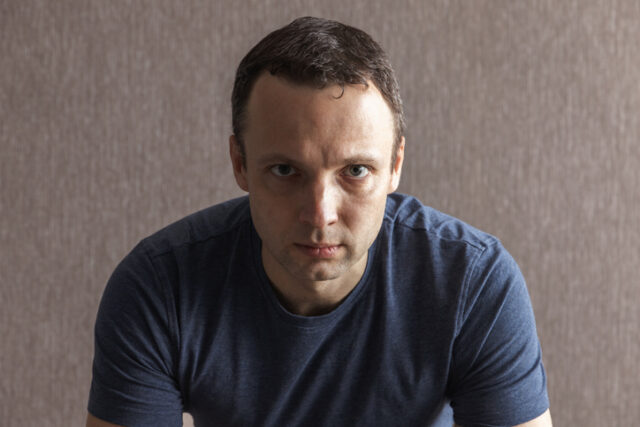Dissociation is referenced a lot these days, particularly in memes about people using this practice to tune out the problems of the world.

However, not a lot of people know what it really is. In reality, dissociation is one of those things people experience without always realising it’s happening. It’s like your mind takes a step back, making you feel detached or distant from everything going on around you. It’s a defence mechanism, in many ways; your brain’s way of protecting itself from feeling overwhelmed, and it can lead to all kinds of behaviours you wouldn’t even recognise as problematic. Here are some key signs to look out for that may mean you’re dissociating. While everyone does it from time to time, if this becomes a habit for you, don’t hesitate to get some help from professionals.
1. Feeling disconnected from yourself

One of the most common signs of dissociation is feeling like you’re not fully present in your own body. It can feel like you’re watching yourself from the outside or like things aren’t quite real. That level of detachment can come and go, making it hard to explain. You might feel like you’re floating through the day, going through the motions without really feeling connected to yourself. It’s unsettling, but often happens when the brain is trying to cope with stress or overwhelm.
2. Struggling to remember things

Sometimes, dissociation makes it hard to recall details of conversations, events, or even what you did earlier in the day. It’s like your brain wasn’t fully present to store the memory in the first place. Unlike simply forgetting something, it can feel like a gap in time. You might suddenly realise you don’t remember driving home, or lose track of large chunks of a conversation. It often happens when the mind temporarily checks out to avoid emotional overload.
3. Feeling like the world around you isn’t real

Things might seem blurry, distant, or dreamlike. The people around you can feel far away, even when you know they’re right there. It’s as if there’s an invisible barrier between you and reality. That sensation, called derealisation, makes it hard to engage with what’s happening. Everything feels a little off, like you’re in a movie or watching life through a screen. It’s disorienting, but often the brain’s way of creating distance from overwhelming emotions.
4. Zoning out for long periods

Everyone spaces out sometimes, but with dissociation, it happens more often and for longer stretches. You might suddenly snap back and realise you’ve lost minutes, sometimes even hours, without noticing. These blank moments often happen during stress or boredom. You could be staring at a screen or sitting in a meeting, and suddenly realise you’ve completely disconnected from what’s happening. It’s not intentional; it’s your brain slipping into autopilot mode.
5. Feeling emotionally numb

Dissociation doesn’t always make you feel spaced out; it can also shut down emotions completely. You might struggle to feel happiness, sadness, or even frustration, leaving you feeling emotionally blank. That numbness is the brain’s way of protecting itself from stress or emotional overload. Instead of reacting, it shuts down completely, making things feel distant or muted. It’s frustrating because you might know how you should feel, but can’t seem to access the emotions properly.
6. Not recognising yourself in the mirror

Have you ever looked in the mirror and felt like the person staring back isn’t quite you? Dissociation can make you feel unfamiliar in your own skin, as if you’re looking at a stranger. It can be a fleeting feeling or something that lingers. It’s often linked to depersonalisation, where you feel disconnected from your own body. It’s not that you don’t know it’s you—it just doesn’t feel quite right.
7. Feeling like you’re on autopilot

Some days, it can feel like you’re just going through the motions. You get up, go to work, have conversations… but it all feels robotic, like you’re acting rather than actively living. When dissociation kicks in, it can make life feel like a script you’re following rather than something you’re fully present for. You do things automatically without much thought, realising later that you barely remember half of it.
8. A sudden shift in identity or personality

Dissociation can sometimes cause noticeable shifts in how you feel about yourself. You might suddenly struggle to connect with your usual personality, interests, or even your own sense of identity. It can feel unsettling, like you don’t quite know who you are. Your thoughts and emotions might not feel like yours, or you could feel like a different version of yourself entirely. It’s a sign that your mind is distancing itself from something emotionally tough.
9. Feeling like time moves strangely

Time can feel distorted when you’re dissociating. Hours might pass in what feels like minutes, or short periods can seem to drag on forever, making it hard to track what’s happening. It can be especially noticeable in stressful moments. Your brain might slow things down or fast-forward without you realising, making it tricky to stay grounded in the present. It’s like your sense of time becomes unreliable when your mind is trying to escape reality.
10. Finding it hard to connect with other people

Even when you’re surrounded by people, dissociation can make it feel like there’s an invisible wall between you and them. Conversations might feel distant, or you might struggle to engage emotionally with those around you. It’s not that you don’t care; it just feels like you’re operating on a different level. Your mind might feel detached, making interactions seem surface-level or draining. It can make relationships feel strained, even when you want to connect more.
11. Experiencing sudden intrusive thoughts or memories

Dissociation isn’t always about feeling blank — it can sometimes bring a flood of memories or thoughts out of nowhere. They can feel intrusive, appearing suddenly and making it hard to focus on the present. It’s often linked to past experiences that the brain is trying to process. Instead of dealing with them gradually, they sometimes surface unpredictably. It can make daily life feel jarring, as if your mind keeps pulling you into past moments without warning.
12. Having trouble recognising danger or risk

When you’re dissociating, your awareness of risk can fade. You might walk across a busy road without fully processing it, or find yourself in unsafe situations without reacting as you normally would. It happens because dissociation dulls the brain’s responses, making things feel distant or unreal. Instead of reacting quickly to potential danger, you might feel oddly indifferent or disconnected from the sense of urgency.
13. Struggling to describe what’s happening

One of the hardest parts of dissociation is trying to explain it to someone else. It doesn’t always make sense, and putting it into words can feel impossible when your own experience feels so disconnected. Even when you recognise the signs, describing them can be tricky. The feelings are often vague, fleeting, or tough to grasp, making it hard to explain exactly what’s going on. It can make it even more frustrating when you’re trying to understand it yourself, but if you’re struggling, reach out to a therapist or even a close friend or family member for help.



